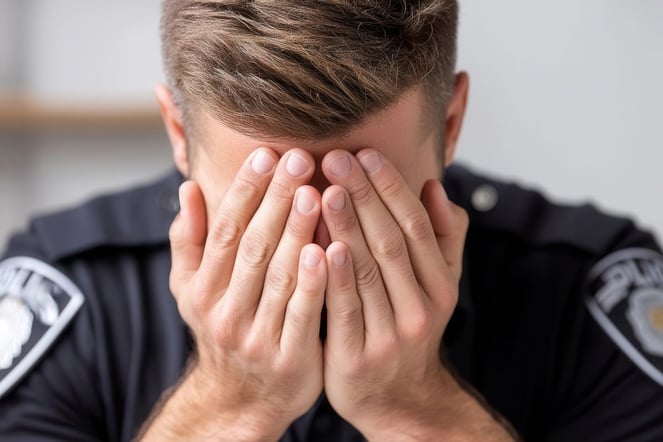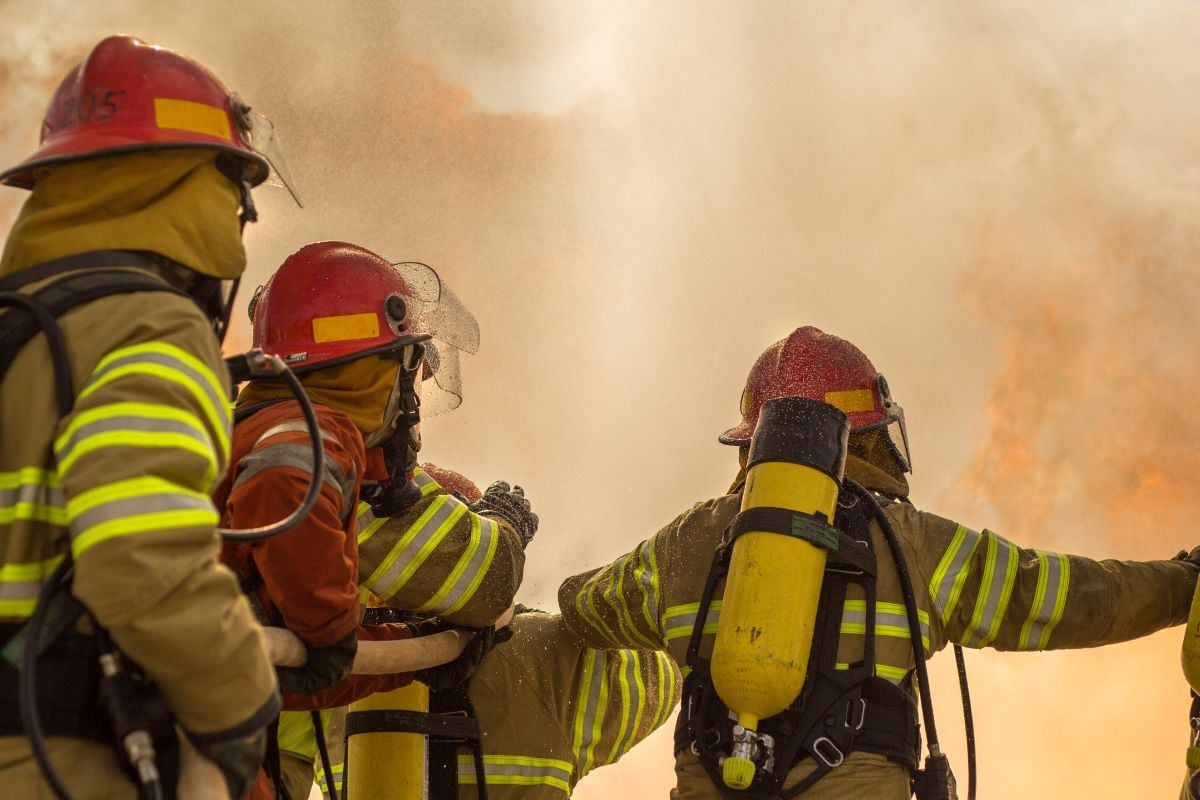First responders’ addiction treatment programs are targeted and specialized treatment programs, because they must address the unique challenges that our first responders face due to the high-stress, trauma-filled nature of their work. Police officers, firefighters, paramedics, and emergency medical personnel are constantly exposed to life-and-death situations, long hours, and emotional strain.
Over time, some of these quiet heroes may turn to alcohol, prescription medications, or illicit substances as a way to cope. Unfortunately, stigma and concerns about job security often prevent them from seeking the help they so desperately need.
How Does Rehab For First Responders Work?
Specialized first responder addiction treatment programs are designed specifically for this population to provide a confidential, trauma-informed approach to recovery. These programs integrate peer support, evidence-based therapies, and stress management techniques to help first responders recover and regain control of their lives. By focusing on both mental health and addiction recovery, first responder rehab offers a path to healing for these dedicated public workers without compromising their careers or dedication to service.
If you or a friend are a first responder suffering from addiction, Avenues Recovery offers confidential, specialized rehab programs to help you get the help you deserve.
Addiction In First Responders
First responders—including police officers, firefighters, paramedics, and emergency medical technicians (EMTs)—face unique occupational challenges that increase their risk for substance use disorders (SUDs). Exposure to traumatic events, high-stress environments, and irregular work hours contribute to higher rates of alcohol and drug misuse compared to the general population.
First Responders Addiction Statistics
Here are some statistics related to drug and alcohol use for first responders.
Alcohol Use:
- Firefighters: A 2020 study found that approximately 58% of firefighters engage in binge drinking, with 14% reporting hazardous drinking behaviors.
- Police Officers: Research indicates that around 30% of police officers report problematic alcohol use, a rate significantly higher than the general population's estimated 10%.
- Paramedics: Approximately 30% of paramedics engage in problematic alcohol use, mirroring rates observed in other first responder professions.
Drug Use:
- Prescription Drug Misuse: About 20% of first responders have reported using prescription drugs inappropriately or engaging in illicit drug use, compared to 8-10% in the general population.

The Link Between First Responders and Addiction
First responders—police officers, firefighters, paramedics, and EMTs—face intense pressure daily. They witness life-and-death situations, work exhausting shifts, and carry the weight of traumatic events long after their shifts end. Over time, the stress, emotional burden, and physical demands of the job can take a serious toll on mental health, leading many to seek relief through substances like alcohol, prescription medications, or illicit drugs.
Studies show that first responders are at a significantly higher risk for addiction than the general population. PTSD, anxiety, depression, and chronic pain often go untreated due to the stigma around seeking help. Instead, some turn to self-medication as a way to cope. Easy access to medications, a culture that normalizes drinking as stress relief, and the need to stay "strong" for the job only exacerbate the problem.
The good news is that help is available. With specialized rehab programs designed specifically for first responders, recovery is possible. Trauma-informed care, peer support, and evidence-based therapies provide the tools needed to heal—without fear of judgment or career repercussions. Recognizing the link between first responders and addiction is the first step toward breaking the cycle and ensuring these everyday heroes get the help they deserve.
Signs of Addiction in First Responders
Recognizing the signs of addiction in first responders is crucial, as early intervention can prevent long-term consequences. Behavioral changes are often the first indicators, including:
- Increased secrecy
- Withdrawal from colleagues and loved ones
- Decline in job performance
Frequent tardiness, unexplained absences, or difficulty concentrating on tasks may also signal substance misuse. Many first responders may exhibit mood swings, irritability, or heightened aggression, particularly when confronted about their behavior. Additionally, engaging in risky or reckless activities—such as drinking and driving—can indicate a loss of control over substance use.
Physical Signs of Addiction in First Responders
Some physical signs of addiction in first responders may include:
- Frequent hangovers
- Bloodshot eyes
- Tremors
- Sudden weight loss
- Changes in sleeping patterns (excessive fatigue or insomnia)
- Unexplained injuries
- Neglect of personal hygiene
Psychological Signs of Addiction in First Responders
Psychological symptoms like anxiety, depression, and paranoia may intensify as substance use escalates. Financial problems, legal issues, or conflicts with supervisors can further point to an underlying addiction. Since first responders are often skilled at masking distress, it is essential for colleagues and loved ones to remain vigilant and encourage open conversations about mental health and substance use.
Substances Commonly Abused by First Responders
Alcohol is the most commonly abused substance, often used to cope with job-related stress and trauma, with high rates of binge drinking reported in law enforcement and firefighting communities.
Prescription opioids like oxycodone and hydrocodone are also frequently misused due to injuries and chronic pain, leading to a risk of dependency.
Stimulants like Adderall, cocaine, and meth are sometimes used to maintain alertness during long shifts, while marijuana is increasingly used for stress relief and pain management.
Benzos like Xanax and sleep aids like Ambien are common among first responders struggling with anxiety, PTSD, and insomnia. Anabolic steroids, though less frequently discussed, are sometimes used in these professions to enhance physical performance, and in more severe cases, illicit drugs like heroin may be abused, particularly by those who initially became addicted to prescription painkillers.
Drug and Alcohol Rehab for First Responders
Drug rehab for first responders must address the unique challenges of first responders, such as PTSD, anxiety, and the pressure to maintain a strong public image. Medically supervised detox programs like those available at Avenues Recovery Center provide a safe way to manage withdrawal symptoms, while inpatient or outpatient rehabilitation offers structured therapy, including cognitive behavioral therapy (CBT) and trauma-informed care. Peer support groups create a sense of understanding and community, reducing the stigma often associated with seeking help.
Confidentiality is the greatest concern for many first responders, making specialized treatment programs that cater to their profession crucial. Programs designed for first responders often incorporate job-specific stress management techniques, resilience training, and family therapy to aid long-term recovery. Medication-assisted treatment (MAT) may also be used when appropriate to manage cravings and withdrawal symptoms. Aftercare programs, such as ongoing counseling, peer mentoring, and wellness initiatives, all help prevent relapse and support reintegration into the workforce. By addressing both the addiction and underlying mental health challenges, these tailored treatment approaches improve recovery outcomes and overall well-being.

Dual Diagnosis in First Responder Addiction Treatment
First responders often experience high levels of stress, trauma, and pressure, putting them at greater risk for both substance use disorders (SUDs) and co-occurring mental health conditions such as PTSD, anxiety, and depression. This combination of addiction and mental health disorders - known as dual diagnosis - requires an integrated treatment approach which simultaneously addresses both addiction and underlying psychological issues. Without proper treatment, untreated mental health conditions can drive continued substance use, creating a cycle that is difficult to break. Effective dual diagnosis treatment for first responders includes evidence-based therapies such as cognitive behavioral therapy (CBT), dialectical behavioral therapy (DBT), eye movement desensitization and reprocessing (EMDR) for trauma, and medication-assisted treatment (MAT) when necessary.
Specialized treatment programs for first responders provide a confidential and supportive environment where they can receive care without fear of professional stigma. These programs often incorporate peer support groups, resilience training, and stress management techniques to help individuals develop healthier coping mechanisms. Family therapy and workplace reintegration support are also key components, ensuring that first responders can return to their roles with improved mental health and reduced risk of relapse. By addressing both addiction and mental health simultaneously, dual diagnosis treatment improves long-term recovery outcomes and overall well-being.
Rehab For First Responders at Avenues Recovery
If you are a first responder struggling with addiction, or know one who is, reach out to us at Avenues Recovery Center. We consider treating the quiet heroes of our community an honor and privilege. Avenues provides the highest level of care in a warm and welcoming environment. Your sober future awaits! Reach out to our dedicated admissions team today to begin your journey to recovery.


